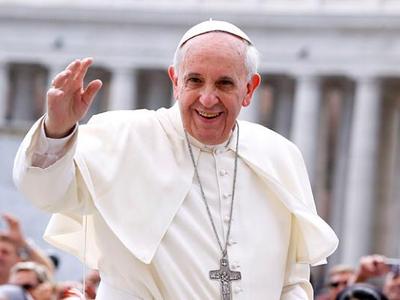How Has Pope Francis Performed?
The Commentator
When the then Cardinal Bergoglio came to the papacy three years ago, no one really knew what to expect. At his investiture I wrote in these pages: “A new pope begins with a huge well of optimism and confidence which will last a while but not forever. Francis needs to reassure the faithful.” So, in three years, how has he done? The concerns three years ago were about child abuse in the clergy and corruption in the Vatican. As to the first, Francis has shown himself willing to listen to the victims and ready both to apologise and to punish the guilty. Work began on reforming the Curia, the Vatican’s government, almost on the new pope’s first day. He appointed a Council of Cardinal Advisers to restructure the government, many of them outsiders. Francis has made dramatic changes to the IOR, the Vatican Bank, which had too often received money from criminal sources. IOR is now subject to international banking and money laundering norms. So far, so good. But Francis is such an odd incumbent of his office, people started wondering about him. He, in turn, seems to have encouraged their curiosity. Odd? Yes: he is the first Jesuit pope, after his order had been persecuted by many of his predecessors. He is the first from the southern hemisphere, indeed the first non-European since an obscure Syrian in the 8th century. Francis is the first Pope since the tenth century to use a name no one has used before. He had been famous in Argentina for travelling to work by bus; now he refused the papal apartments and refused the traditional vestments. It is almost as if he set out to get tongues wagging, to get the faithful analysing every word. After his election I wrote: “The enthronement of Francis is so fraught with symbolism people will be reading the tea leaves years hence”. And very soon, people began to believe two things about him. The first was that he would move the Church towards permitting homosexuality; the second that he would permit divorced and remarried Catholics to take holy communion. Either of these would mean a very great step for the Church, greatly to the delight of the liberals, greatly to the anger of the conservatives. Speculation about homosexuals came from a remark of Francis that, “if someone is gay and searching for the Lord, who am I to judge?” I am told, however, that there was never any serious prospect of him wanting to change the Church’s teaching. He should have realised the remark would be misinterpreted. Last year Francis convened a special synod on the family which took as its premise something written by the arch liberal Cardinal Kasper. The Pope seemed to be throwing his hat in the ring in favour of readmitting the divorced. Conservative members roundly voted down any such move. If Francis seemed foolish on homosexuality, he seemed helpless on divorce. You could certainly be forgiven for thinking that Francis simply says the first thing that comes into his head. His environmental encyclical, Laudato Sii, was not well received; it contained no original thought, and the world already has plenty of environmental verbiage. So why did he write it? And it is in this light that we must see his visit to Lesbos, bringing back a dozen unfortunates. He is powerless to solve the refugee crisis and so resorts to gesture politics. These people are looking for work. In several small European countries a Syrian muslim might find a job: Monaco, Andorra, San Marino, perhaps, but not in Vatican City. The Vatican refugees will need permission to enter Italy, then, like all the others, will try to get to northern Europe, where there is work. So was Francis trying to exhort us all to take in refugees? He must know that this is a matter not for the faithful but for governments, which have to find money for housing, roads, schools, policing, welfare for the incomers. It is almost as if he made this trip for his own conscience, his own bella figura. And yet…. This is a good man. In a position where good men are commonplace, his goodness stands out. Who can forget his wish for “a church that is poor, for the poor”, or exhortation to the high-living senior clergythat, “we must be shepherds who smell of the sheep”? A pope does not need to give an opinion on everything; he must know when it is a good idea to remain silent. In particular he needs to stay out of politics when it benefits neither the shepherd nor his flock.
|
.
Any original material on these pages is copyright © BishopAccountability.org 2004. Reproduce freely with attribution.
